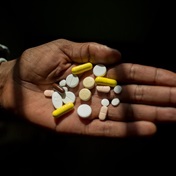
These words by Aids activist Pieter-Dirk Uys were echoed at a recent media conference that had an encouraging message on how thousands of HIV-positive South Africans are living healthy, productive lives.
In fact, South Africans have several good reasons to be optimistic about the country's future regarding the pandemic.
"People don't have to die of Aids anymore… I've seen how hundreds and thousands of people have turned their lives around," Dr Margie Hardman, who established the Acts Community Clinic in Mpumalanga, told media representatives.
Hardman was one of the speakers at the conference, hosted by the Health Products Association of Southern Africa, which was held in Cape Town.
Simple steps such as establishing good treatment facilities, providing home care in conditions of extreme poverty and neglect, and offering support groups have helped many people in the Mpumalanga area to overcome HIV/Aids-related obstacles.
But, according to experts attending the conference, more needs to be done to address the challenges by which this country is confronted in the face of a pandemic that's claiming 1 000 South African lives every day.
The role of nutrition
Much of Hardman's talk centred on the role of nutrition. This topic has recently sparked controversy, mostly due to the activities of controversial vitamin salesman Matthias Rath and statements made by Health Minister Manto Tshabalala-Msimang regarding the role of vegetables in the treatment of HIV/Aids.
According to Hardman, more education is needed in terms of nutrition basics: people should learn how to distinguish between healthy foods and unhealthy ones. The fact that good nutrition isn't necessarily synonymous with high cost should be emphasised. "You don't have to buy fancy foods," Hardman says, noting that there should rather be a shift back to the more traditional African diet, rich in legumes, fruit and vegetables.
In addition, the micronutrient intake of people living with HIV/Aids should be addressed, as many vitamins and minerals help to boost immune function. Micronutrients most likely to be low in African diets are vitamin A, folic acid, the B-vitamins, vitamin C, iron and zinc. Special attention should be given to the inclusion of these.
Furthermore, selenium is being researched as playing a critical role in HIV/Aids, Hardman says. She explains that low blood selenium levels are linked to higher death rates and that levels of this nutrient are generally low in African soil. This puts people on this continent at risk for selenium deficiency.
The bigger treatment picture
Hardman emphasises, however, that nutrition should merely form part of the bigger treatment picture. Antiretrovirals (ARVs) also have a crucial role to play.
The good news is that HIV-positive people, who have relatively high CD4 counts and low viral loads, can often remain healthy for many years without using ARVs. The key is to incorporate nutritional supplements, as well as a balanced lifestyle, into the treatment regime, Hardman says.
According to her, it's now also possible to prevent HIV infection in all babies born to HIV-positive mothers. In fact, none of the babies born to HIV-positive mothers at the Acts Community Clinic are infected with the virus.
These positive messages coincide with the recent presentation of the draft National Strategic Plan for HIV/Aids and STIs for 2007 – 2007 to the National Health Council.
One of the aims of the Plan is to achieve a 50% reduction in the rate of new HIV infections by 2011. Another is to provide an appropriate package of treatment, care and support services to at least 80% of people living with HIV and their families by the same year. – (Carine van Rooyen, May 2007, Health24)
Read more:
Aids orphan takes on world




 Publications
Publications
 Partners
Partners














